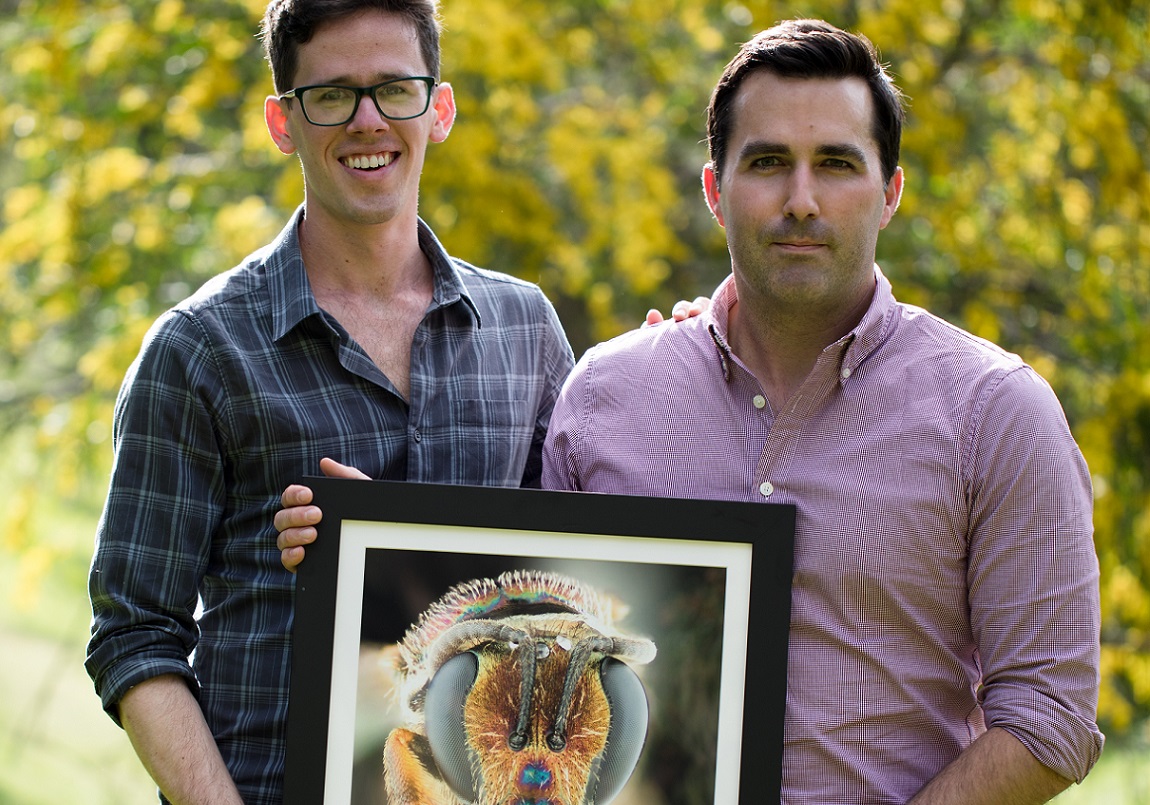
A newly described bee has just been named after Flinders University graduate Dr Scott Groom, highlighting his research-leading role investigating bees and their importance for pollination and the environment.
The honour was bestowed by Associate Professor Mike Schwarz, Dr Mark Stevens and Flinders University and UniSA students after New Colombo Plan-funded research in Fiji this year led to the naming of nine new native bee species from remote parts of the Fijian islands.
The eye-catching Homalictus groomi was named after Dr Groom, who began uncovering this hidden diversity using molecular techniques with Flinders University and the South Australian Museum back in 2009.
Dr Groom spent six months in Fiji in 2011 with an Endeavour Research Fellowship after several visits between 2010 and 2014.
Flinders University biological sciences PhD James Dorey – well known for his macro-photography of native Australian bees – was pleased to recently catch up with his predecessor at Flinders.
Dr Scott, who graduated in 2014, was then based at Kyoto University for two years as a Japan Society for the Promotion of Science postdoctoral fellow.
“There I used a socially polymorphic species, where social and solitary nests occur in the same population, to investigate differences in gene expression and pheromone profiles to understand the evolution of social behaviour,” Dr Groom says.
In 2017, as a postdoc at the University of Adelaide, he started to investigate how the proximity of native vegetation influences pollinator communities and their impact on crop yields in apple and lucerne. He will continue studying apple pollination beyond 2020.

